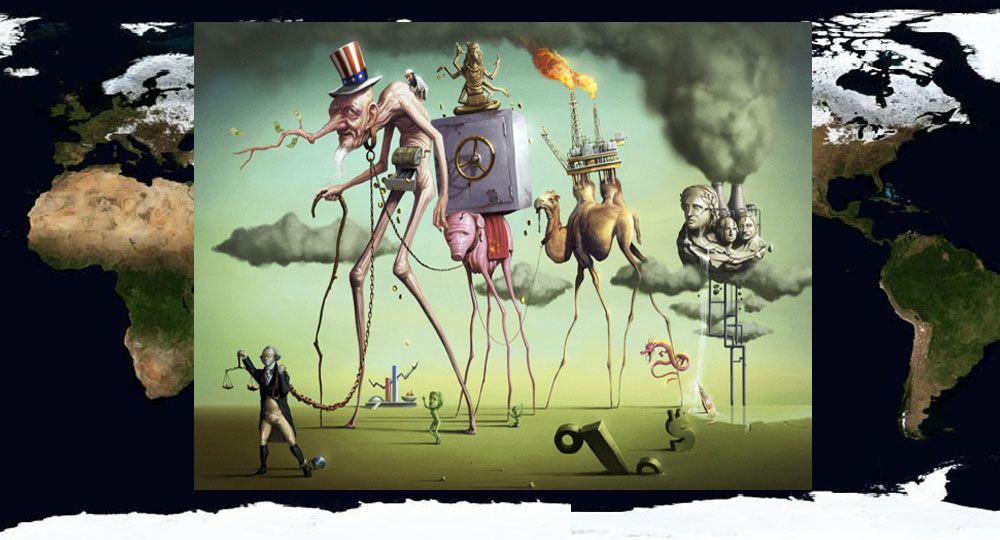
The Art of War
The Western American Empire in crisis
Manlio Dinucci
The US tariff war against China and the new sanctions against Russia are signs
of a trend that goes beyond current events.
To understand what it is, we should go back about thirty years ago. In 1991 the
United States, winners of the Cold War and of the first post-Cold War war,
waged in the Gulf, declared that "the United States remains the only state
with truly global strength, reach and influence in every dimension – political,
economic and military" and that "there is no substitute for American
leadership " in the world.
By relying on the dollar hegemony, on the global reach of its multinationals
and its financial groups, on the control of international organizations (IMF,
World Bank, WTO), the United States promotes "free trade" and
"Free movement of capital" on a global scale, reducing or eliminating
tariffs and rules. The other Western powers move in their wake.
The Russian Federation, in a profound crisis after the disintegration of the
USSR, is considered by Washington as an easy land of conquest, to be
dismembered to better control its great resources.
China, open to the market economy, also appears to be conquerable with US
capital and products and exploitable as a large reservoir of low-cost
labor.
Thirty years later, the "American dream" of the unchallenged
domination of the world has vanished.
Russia, by putting up an internal front to defend national sovereignty, has
overcome the crisis and regained the status of great power.
China, "the world’s factory" where also US multinationals produce,
has become the world's leading exporter of goods and makes increasing foreign
investments. Today it challenges the technological supremacy of the United
States.
The project of a new Silk Road - a road, rail and maritime network between
China and Europe through 60 countries - places China at the forefront of the
process of globalization, while the United States is perched erecting economic
barriers.
Washington looks with growing concern at the economic and political partnership
between Russia and China, which challenges the hegemony of the dollar.
Failing to oppose this process only through economic instruments, the United
States resorts to the military ones. The putsch in Ukraine and the subsequent
nuclear escalation in Europe, the strategic shift to Asia, the wars in
Afghanistan and Syria, are part of the strategy with which the US and the other
Western powers try to maintain the unipolar dominance in a world that is
becoming multipolar.
However, this strategy is suffering a series of setbacks. Russia and China,
under increasing military pressure, reacted by strengthening their strategic
cooperation.
Russia has not been got on the ropes but, in a surprise move, intervened
militarily in support of the Syrian State which, in the US/NATO plans, should
have ended up like the Libyan State. In Afghanistan, US and NATO are mired in a
war that has been going on for over 17 years.
As a reaction to these failures, the propaganda campaign is intensified to make
Russia appear as a dangerous enemy, also using the false flag of chemical
attacks in England and Syria.
The same technique was used in 2003 when, to justify the war against Iraq,
Secretary of State Colin Powell presented to the UN the "evidence"
that Iraq possessed weapons of mass destruction. Powell, in 2016, had to admit
the non-existence of such weapons. In 15 years, however, the war has caused
over a million deaths.
NO WAR
NO NATO
No comments:
Post a Comment
Note: Only a member of this blog may post a comment.